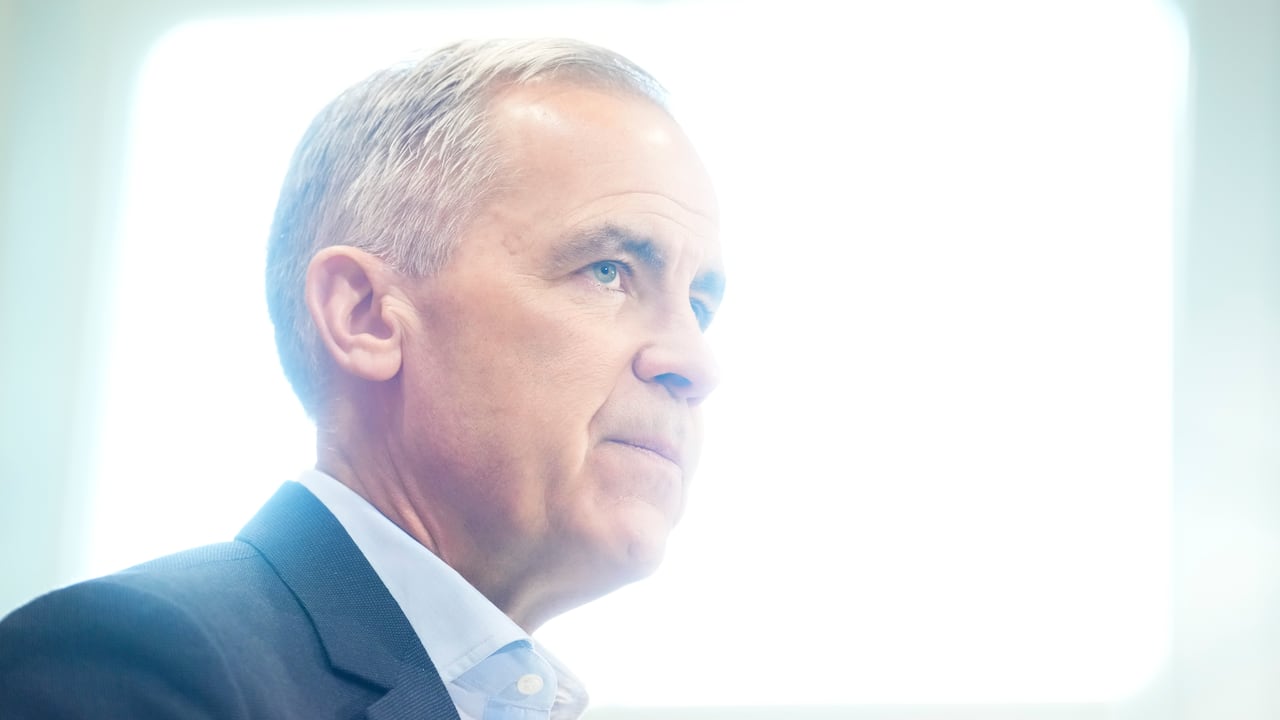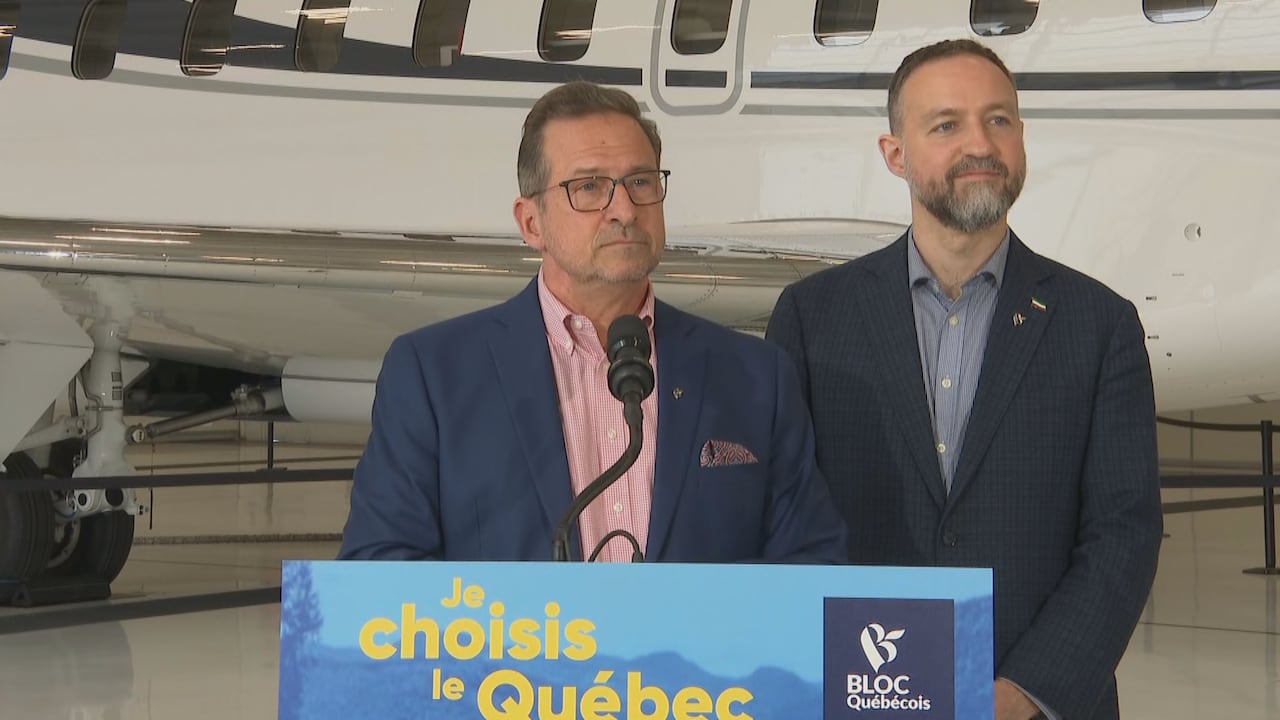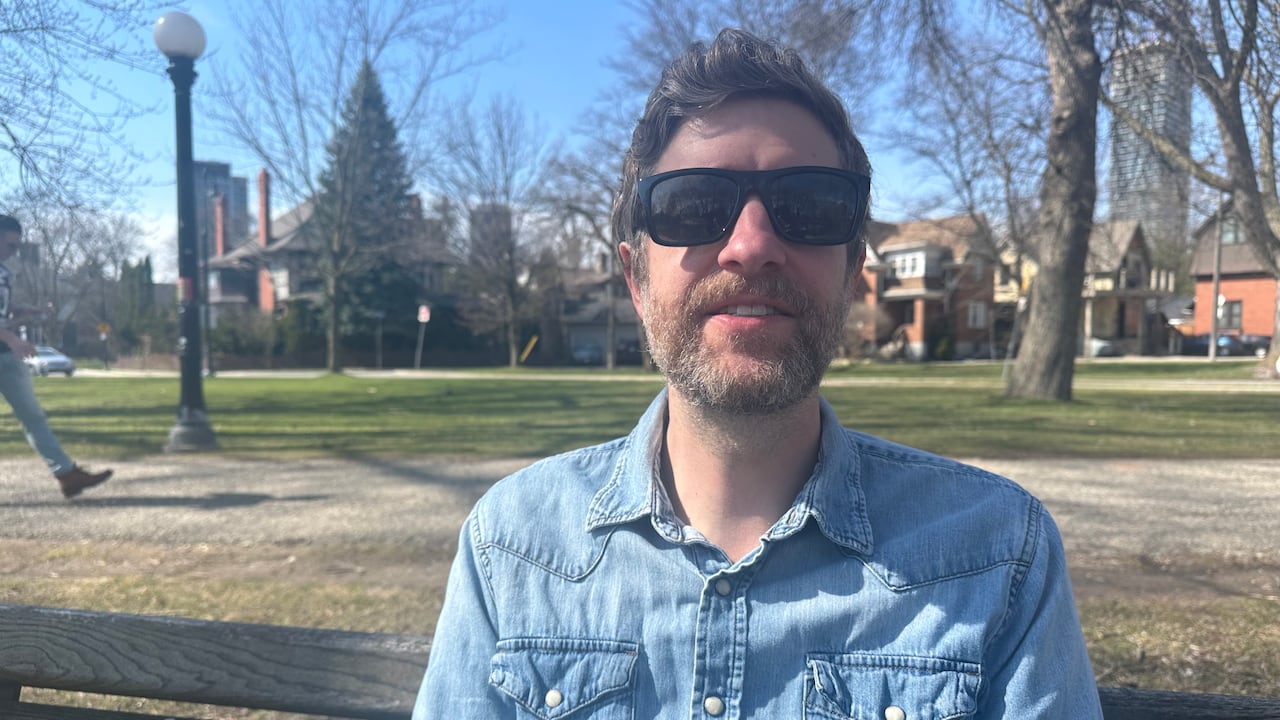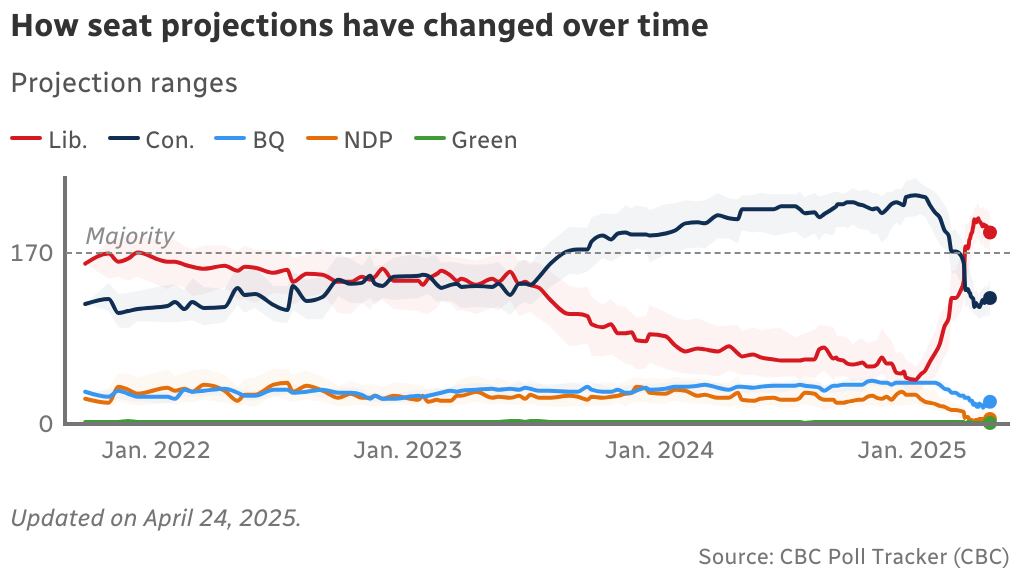Canada election: Carney confirms Trump made ‘51st state’ comment during 1st call


- The federal leaders are fanned out across the country again as election day nears.
- Radio-Canada is reporting today that U.S. President Donald Trump used the term “51st state” during his March 28 call with Mark Carney, who told reporters later on that the U.S. president “respected Canadian sovereignty” during the call.
- Carney confirmed during an event in Port Moody, B.C., today that Trump used “51st state” rhetoric, but said the president “absolutely” respected Canada’s sovereignty.
- Conservative Leader Pierre Poilievre, NDP Leader Jagmeet Singh and Bloc Québécois Leader Yves-François Blanchet all criticized the Liberal leader during morning events.
- The U.S. president suggested again yesterday at the White House that Canada would be better off as a U.S. state.
- Catharine Tunney
Carney has not run a perfect campaign. His French can be shaky. He misidentified the tragic mass shooting one of his candidates survived (plus he mispronounced her name). And his debate performances were widely seen as mediocre. The Liberal leader can sometimes come off as prickly with reporters.
But so far, Canadians don’t seem to register any gaffes. The Liberals have led in the polls since the election campaign started and most Canadians report that they have a more favourable view of Carney than of Poilievre. And while there has been some narrowing in the polls, Carney appears to be on track to form government Monday.
While Blanchet and Singh have accused Carney this morning of not being truthful about his conversation with Trump, it’s unclear if voters will see it that way, let alone change their vote.
It’s a campaign to be studied.
- Catharine Tunney

Mark Carney, left, and U.S. President Donald Trump. (Frank Gunn, The Canadian Press/Associated Press) This election has largely been framed as who is the best leader to take on Trump (at least, that’s what Liberals want the ballot box question to be).
The president has been relatively quiet about Canada during the past three weeks, but reinserted himself back into the conversation yesterday.
Speaking to reporters in the Oval Office, Trump repeated his false claim that the United States "subsidizes" Canada to the tune of $200 billion US a year.
"I have to be honest, as a state it works great," Trump said.
The comments gave Carney a chance to underscore his pitch with the message he wants Canadians to have top of mind as they cast their votes.
“I will be equally clear: this is Canada. We decide what happens here,” he said during a campaign stop in Port Moody, B.C.
“Yesterday was more proof that the old relationship with the United States is over.”
- Catharine Tunney

Liberal Leader Mark Carney, facing questions about a Radio-Canada report that said U.S. President Donald Trump made a '51st state' comment during their call in late March, confirmed Trump made the remark — but said the president had treated him as prime minister and they had discussions as sovereign nations.
Carney says he was being truthful when he told Canadians Trump agreed on a phone call with him that Canada is a sovereign nation.
“We had discussions as sovereign nations,” he said.
He was responding to a story from Radio-Canada, reporting that Trump referred to Canada as the 51st state during his March 28 call with the prime minister.
Carney told reporters at the time that Trump had respected Canada’s sovereignty in private and in public comments.
When asked if Trump made 51st state comments during the call, Carney said yes: “The president brings this up all the time.”
Carney said Trump agreed to resume negotiations with Canada, as a sovereign country, after the election.
“The president has certain things in his mind that he reverts back to all the time, but he treated me as the prime minister, not as something else,” he said, in reference to Trump’s habit of calling former prime minister Justin Trudeau governor.
The Liberal leader appeared agitated when he was asked multiple questions about his framing of the call.
- Jenna Benchetrit

Bloc Québécois Leader Yves-François Blanchet, speaking from Montreal during the final week of the federal election campaign, is asked about a Radio-Canada report that Trump did mention making Canada the 51st U.S. state during a March 28 call with Liberal Leader Mark Carney. Carney previously said Trump 'respected Canada’s sovereignty' during the conversation.
Bloc Québécois Leader Yves-François Blanchet had some fiery words reserved for Carney after a Radio-Canada report that Trump referred to Canada as the 51st state during his March 28 call with the prime minister.
Carney told reporters at the time that Trump had respected Canada’s sovereignty during their discussion.
“It seems more and more to have been a stunt. He wanted to make a statement: ‘I am Mark Carney. I am the best of them all. I'm a great negotiator. I have managed crises in the past. I would change the world, trust me,’” said Blanchet.
Blanchet went on to say that it appears the call was not as it had been described.
“There was no agreement, no support for Canada's sovereignty, no beginning for a deal — just the show of a man who wanted to pretend something which appears, today, not to be true,” he added.
“I believe many people in Canada and in Quebec will say, what the hell is that? And if that is not true, what else is not true?”
- Jenna Benchetrit
We’re expecting the Liberal leader will be grilled over Radio-Canada’s report.
- Peter Zimonjic

A Tesla parked at an EV charging station in Toronto. (Sam Nar/CBC) Hey there, I’m Peter Zimonjic, a senior writer here in the CBC Parliamentary Bureau.
Today, Poilievre said he’d scrap the electric vehicle mandate requiring 20 per cent of light duty vehicle sales in Canada to be zero-emission by 2026, 60 per cent by 2030 and 100 per cent by 2035.
The Conservative leader specifically took issue with the compliance measures around the deadlines in the mandate, saying companies will be hit with a $20,000 tax for every EV they are short on the sales targets.
In reality there isn’t a “tax” applied to automakers for failing to hit sales targets, but there are compliance benchmarks. Here’s how it works:
A company that doesn’t make enough EVs is in a deficit position. To get out of that deficit, they can buy an EV credit from another automaker or they can make a financial investment in charging station infrastructure. For every $20,000 they invest they get one credit, and one credit equals one EV.
That charging station investment credit is where the Conservatives’ idea of a “tax” comes from.
The industry is saying that the mandate deadline is impossible to meet so they will be in a deficit and that only gives them a few options: make charging station investments, buy credits, or reduce the number of gas-powered vehicles they sell in a year until they hit the mandate target.
If a company decides to ignore the mandate, which is law, they can face court action, injunctions or even prosecution.
- Meagan Fitzpatrick

Drew Baird is a voter in the Green-held riding of Kitchener Centre in Ontario. (Meagan Fitzpatrick/CBC) I’m reporting today in the Kitchener, Ont., region on CBC News Network. The Kitchener Centre riding is one of two seats in the country held by the Green Party, won by Mike Morrice in 2021. I caught up with him at his campaign office.
“There’s so much at stake in this election,” said Morrice, who won by more than 5,000 votes last election. The Green brand is strong in the region. Provincially, Aislinn Clancy just won re-election in Kitchener and Mike Schreiner, the Green Party of Ontario leader, won in nearby Guelph.
Will Morrice keep Kitchener Green on Monday? I talked to voters in Victoria Park to get their thoughts.
Beth Attwood usually votes for the NDP, but in the advance polls, marked an X next to Morrice’s name. “He’s doing some good stuff,” she said, citing his advocacy for people with disabilities.
Some voters, like Drew Baird, are torn between voting based on who they want to be their MP, versus who they want to be PM. “I’m thinking possibly Green but based on current issues with our neighbour to the south, I’m thinking possibly Liberal,” said Baird.
Michael Kelly, who said he’s looking for a “no fuss” prime minister, made a prediction for his riding: “He’s probably going to hang on to it. He’s a popular guy.”
- Catharine Tunney

Seat projections by the CBC Poll Tracker as of April 24, 2025. (CBC News) Earlier today, Éric Grenier of TheWrit.ca — who manages CBC’s Poll Tracker throughout the election period — posted an update on where things stand on Day 33 of the campaign.
“While the margin between the Liberals and the Conservatives continues to tighten, the Liberals still hold a wider lead than they had going into the last two elections and are favoured to win the most seats thanks to their enduring leads in Ontario, Quebec, B.C. and Atlantic Canada,” he wrote.
“The Conservatives still trail in the polling average in these battlegrounds, while the Bloc Québécois and New Democrats remain on track to suffer significant seat losses.”
- Jenna Benchetrit

Federal leaders Mark Carney and Jagmeet Singh are shown in a composite photo. (Sean Kilpatrick, Adrian Wyld/The Canadian Press) A reporter asked Singh whether the Liberals are trying to show a more progressive side of Carney in an effort to target NDP and Green voters.
Singh said that people are worried about potential cuts by a Liberal government, and that the party is trying to hide from that. Carney has responded to this allegation before, saying he won't cut social programs for Canadians and that his plan is to cut operational costs.
"Mark Carney can't run from his record," said Singh, repeating his go-to talking points about Carney's time as chair of Brookfield Asset Management, and about Carney's planned tax rate cut for the lowest tax bracket, which Singh has characterized as a tax cut for millionaires.
"People are looking at that and starting to be really worried, so I could see why Mark Carney wants to say, ‘Hey, no, no, I'm actually a progressive.’ Well, the facts don't lie," said Singh.
Yesterday, Carney mentioned the NDP and its preference for “progressive policies.”
“To use an NDP term if I may — there, I said ‘NDP’ for the first time in the campaign — progressive policies, I think of them more as policies and institutions that are part of this country because we care about each other," Carney said.
- Catharine Tunney

Singh is shown before making an announcement in Vancouver on Tuesday. (Nathan Denette/The Canadian Press) With just four days left until election day, the NDP is in a tough spot. According to CBC’s Poll Tracker, New Democrats remain on track to suffer significant seat losses.
But Singh, who is running his third campaign as leader, was once again all smiles when reporters asked about his future.
“It’s hard to see how your leadership is not on the line this election,” CBC’s David Thurton said.
Singh said he’s focused on standing up for Canadians. Supporters chanted “Jagmeet! Jagmeet!” to the point the next reporter in line had to ask if she could get her question in.
“We’re just having a good time here,” said Singh.
cbc.ca




